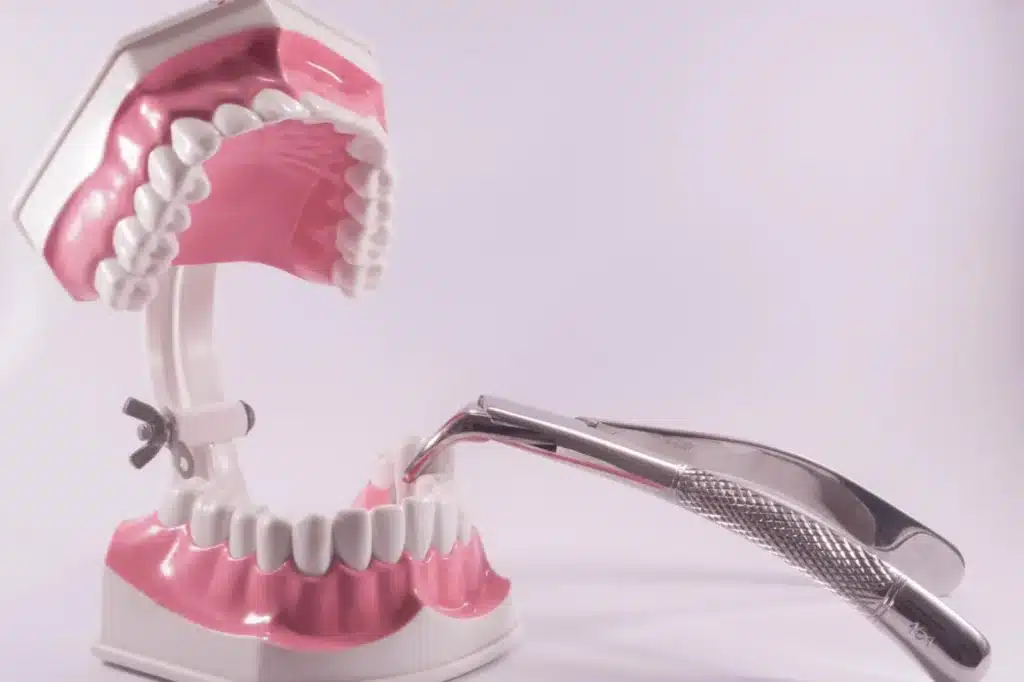Wisdom tooth extraction is sometimes hard to avoid because of the harm it can do if left untreated. Read more to know the reason behind wisdom tooth extraction, the procedure, and the benefits of the removal.
Wisdom Tooth Removal
Wisdom tooth removal, also known as wisdom tooth extraction, is a standard dental procedure. Dentists might recommend it to protect your oral health and prevent potential issues with your other teeth down the road.
Your wisdom teeth, which are also called third molars, are located at the very back of your mouth. They typically start growing between the ages of 17 and 25.
Some people have all four wisdom teeth, one in each corner of their mouth (upper left, lower left, upper right, and lower right). Others may have one, two, three, or none at all. Having a different number of wisdom teeth doesn’t necessarily mean there’s something wrong; it’s just a natural variation and a sign of the ongoing process of evolution.
Why We Need It?
You might need to have your wisdom teeth removed if:
- You have one or more wisdom teeth trapped in your gums or jawbone, either partially or fully.
- Your wisdom teeth have grown in crooked or at odd angles.
- You experience pain near the back of your mouth, where your wisdom teeth are located.
- Food and debris tend to get stuck around your wisdom teeth.
- You develop gum disease, especially around your molars.
- One of your partially erupted wisdom teeth has tooth decay (cavities).
- You develop a fluid-filled sac (cyst) around one or more of your wisdom teeth.
- There is damage to nearby teeth or the surrounding bone.
In many cases, dentists recommend removing wisdom teeth as a preventive measure. This means your dentist may suggest taking out your wisdom teeth even if you don’t have any symptoms. Doing so can help lower your risk of future problems, such as infections and tooth decay.
Procedure
How to Prepare for Wisdom Tooth Extraction?
When you have a consultation with an oral surgeon, they will:
Dentists examine the condition of your wisdom teeth and use dental X-rays to determine where they are located. You must inform your surgeon about any medications, vitamins, or supplements you are taking.
During this consultation, your surgeon will also talk to you about options for sedation dentistry. Depending on your needs and preferences, they might recommend different types of sedation:
- Local anesthesia,
- Nitrous oxide (laughing gas),
- IV sedation, General anesthesia
You are completely unconscious during the procedure.
If you choose IV sedation or general anesthesia, your surgeon will provide you with specific instructions on preparing for the surgery. This may include fasting after midnight on the night before your surgery and possibly discontinuing certain medications a few days before the procedure. However, you should not stop taking medication without discussing it with your surgeon first.

What Happens During Wisdom Tooth Extraction?
On the day of your procedure, your surgeon will:
- Administer anesthesia to numb your teeth and gums, ensuring your comfort. They will also provide sedative medications if you’ve chosen sedation.
- If needed, they may make cuts in your gums (incisions) to expose teeth that are trapped in your gums or jawbone.
- Carefully loosen your wisdom tooth and gently lift it out of its socket. Sometimes, they may need to divide the tooth into sections to make removal easier.
- Clean the area to ensure there’s no risk of infection.
- If necessary, they will use stitches to close up the surgical site.
- They will place gauze over the sockets where the wisdom teeth were removed to control bleeding.
How Long Does It Take?
A wisdom tooth extraction typically lasts an hour or less, although more complicated cases may require more time.
What Happens After Wisdom Tooth Extraction?
After removing your wisdom teeth, you may experience mild discomfort, slight bleeding, and swelling. Your oral surgeon will provide you with guidance on how to manage these side effects. Once the sedation wears off and you’re feeling more alert, it’s crucial to have a reliable friend or family member drive you safely back home.
Benefits
Getting your wisdom teeth removed can lower your chances of experiencing future oral health issues, such as:
- Gum disease
- Tooth decay
- Damage to nearby teeth
- Loss of bone
- Jaw problems
If you’re already in pain due to your wisdom teeth, removing them can provide quick relief and help improve your oral health.
Risks
Typically, having your wisdom teeth removed doesn’t lead to long-lasting problems. However, in rare cases, some people may experience:
- Infections can be identified if you notice pus from the surgical site or incisions.
- Dry sockets occur when the blood clot in the area dissolves, exposing the bone.
- Damage to other parts of your mouth, including your jawbone, nerves, sinuses, or nearby teeth.

Conclusion
Wisdom tooth removal is crucial; ignoring the symptoms can lead to severe tooth infections. Always consult your dentist in an emergency and follow the post-extraction instructions for wisdom tooth removal to avoid any other oral complications.


